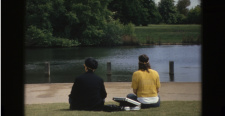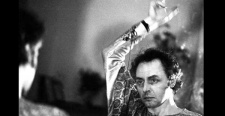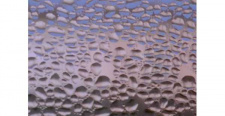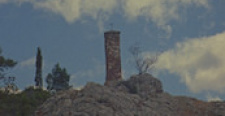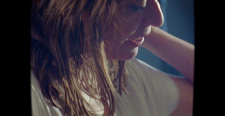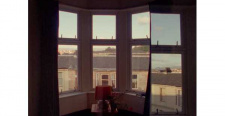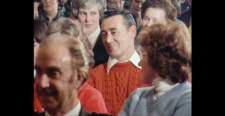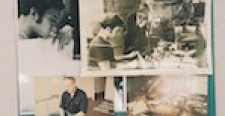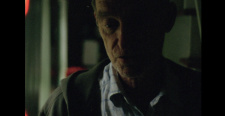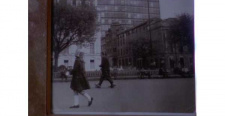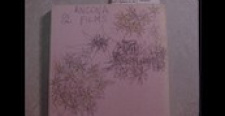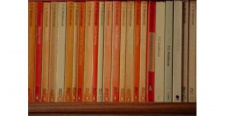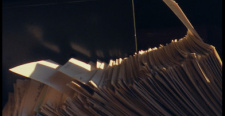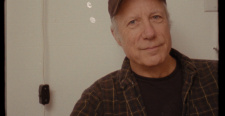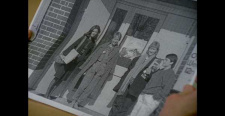A certain predilection for things out of the ordinary: The films of Luke Fowler
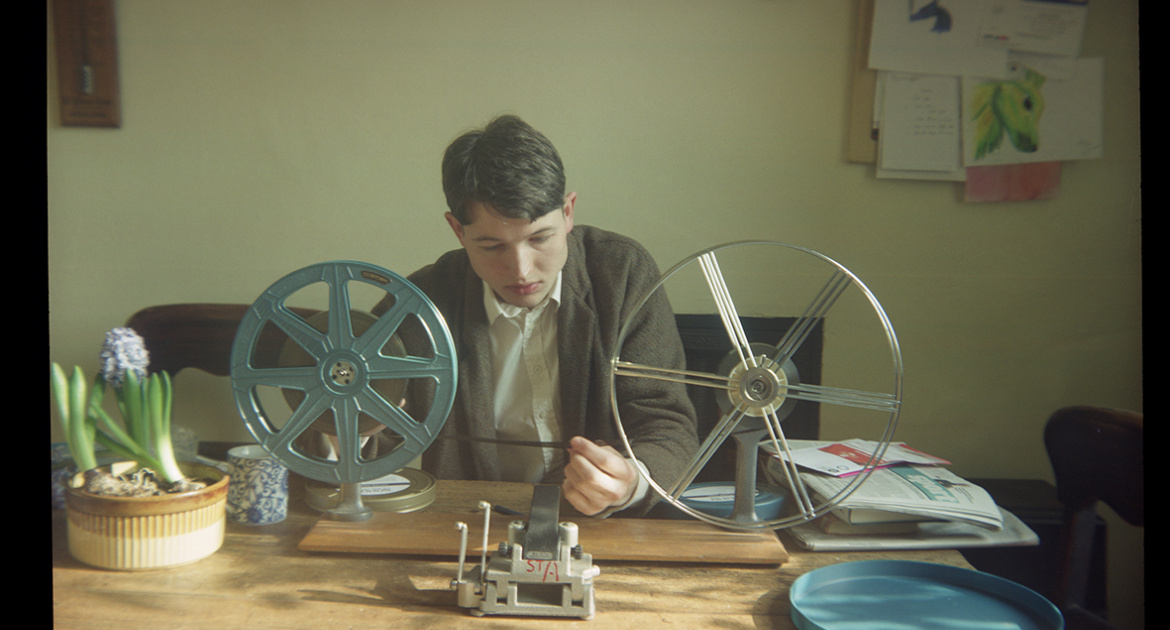
One of this year’s Documenta Madrid retrospectives continues the festival’s collaboration with the Museo Reina Sofia and is dedicated to the film work of Luke Fowler (Glasgow, 1978), a celebrated British artist, filmmaker and musician and former Turner Prize nominee. Encompassing short-, medium- and feature-length work that explores the border region between documentary and experimental film, Fowler’s cinema oeuvre is best described as a form of deeply unconventional portraiture. The experiences of his equally unorthodox subjects are tapped into via carefully compiled audiovisual snippets of their lives, endeavours and surroundings, which Fowler edits together on shimmering 16mm with a sense of openness and rhythm second to none.
Cultural outsiders or figures seldom given the spotlight are Fowler’s favoured choice of subject, whether filmmaker and poet Margaret Tait —Houses (For Margaret)—, a female photography collective from Leeds —To The Editor Of Amateur Photographer—, unorthodox psychiatrist R. D. Laing —All Divided Selves—, the remote communities of the Scottish Highlands —Depositions—, the unseen residents of a Glasgow tenement —Anna, Helen, David and Lester— or even his own mother —Mum’s Cards—. His compassionate portraits aim more at generating sensation or mood than completeness or linearity, taking their bearings from the spaces these diverse individuals spent their lives in and the materials they collected (or have had collected on them) over time. If every person leaves traces, whether textual, pictorial or audiovisual, Fowler is their thoughtful, tender archivist, bringing them into gentle, never constrictive alignment so that their multiple subjectivities, materialities, temporalities, ambiguities and underlying ideologies are on clear display; his use of 16mm, itself a process of capturing traces, makes perfect sense to this end.
Given Fowler’s own successful musical career, it’s unsurprising that music and sound form another integral part of his filmmaking, which is always as much an exercise in listening as it is in seeing. Musicians, often outsider figures too, are frequently at the heart of his films as such, including gay electronic music pioneer Martin Bartlett —Electro-Pythagoras (a Portrait of Martin Bartlett)—, New England based composer and lecturer Christian Wolff —For Christian— and British sound artist Sue Tompkins —Country Grammar (with Sue Tompkins)—. In addition, the enveloping soundscapes and musical accompaniments that form an integral part of Fowler’s work are often forged via direct collaborations with sound artists, composers and recordists, such as Lee Patterson (A Grammar For Listening – Part 1), Eric La Casa (A Grammar For Listening – Part 2) or Toshiya Tsunoda (A Grammar For Listening – Part 3, Cezanne).
The starting point for the retrospective is the Spanish premiere of Fowler’s most recent short film Patrick, which encapsulates many of the formal approaches and thematic concerns that run through his oeuvre. This 21-minute portrait of gay San Francisco disco artist Patrick Cowley, a further pioneer of electronic music who died of AIDS in 1982, explores his legacy in typically shifting fashion, interrupting interviews with his contemporaries and shots of promotional materials and correspondence with luminous, impressionistic fragments of the California landscape and cityscapes that he called home, all tied together by Cowley’s own propulsive sounds.
As sound and image are inextricably intertwined in Fowler’s films, perhaps their most defining formal characteristic is their rhythm, which emerges from the soundtrack but is not restricted to it, as Fowler’s singular grasp of editing creates patterns and pulsations all of its own, a twitchy, hypnotic, intensely corporeal feeling that dovetails with his restless curiosity for those he crafts portraits of. Perhaps one of the opening lines from Electro-Pythagoras (a Portrait of Martin Bartlett) thus offers the best way to describe these unique, delicate combinations of sound and motion, as the way in which their idiosyncratic approach is brought to bear on the idiosyncrasies of their subjects feels like a whole ethos in terms of form and content alike: a certain predilection for things out of the ordinary.
James Lattimer



 DocumentaMadrid
DocumentaMadrid
